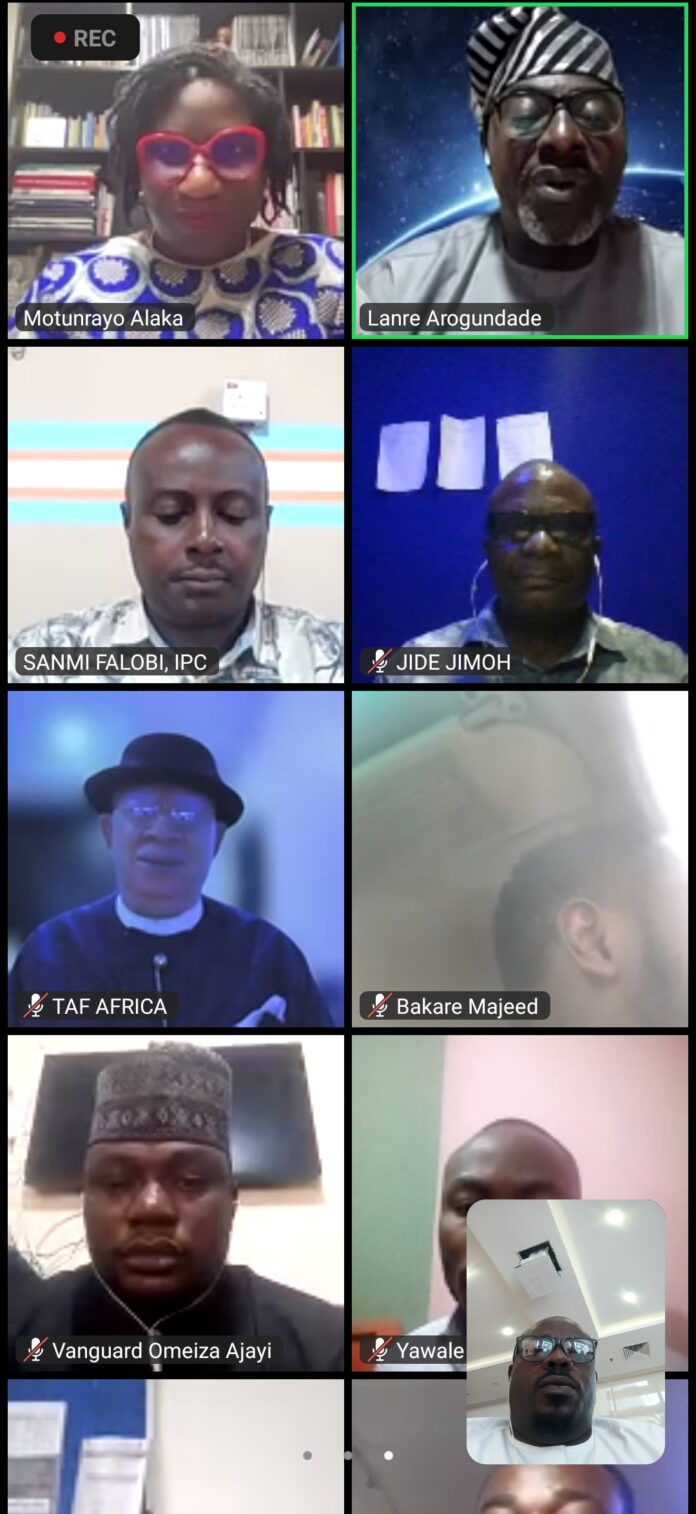BY JESUPEMI ARE,
Jide Jimoh, professor of journalism and media studies at Ajayi Crowther University, spoke on behalf of the IPC on Wednesday during a virtual workshop for journalists on deepening inclusive reporting of electoral and democratic governance issues.
As part of the European Union Support to Democratic Governance in Nigeria (EUSDGN) project, the media monitoring unit of the IPC monitored the coverage of the 2023 off-cycle elections in Kogi, Bayelsa and Imo as reported in 20 print and online newspapers.
The print newspapers monitored were The Punch, The Guardian, Daily Sun, Vanguard, ThisDay, Nigerian Tribune, The Nation, Leadership, Daily Trust, and Daily Independent.
The online media were The Cable, Premium Times, Eagle Online, RealNews, Ikenga, WikiTimes, PenPushing, The Authority, Next Edition and the Qualitative Magazine
Presenting the findings of the unit, Jimoh said in the coverage of the off-cycle polls, the media focused on major political parties, to the detriment of others.
He said out of 18 political parties, five accounted for 96.3 percent of reportage while other parties accounted for just 3.7 percent.
Jimoh also said there was disparity in the reportage of women and under-represented groups.
“There were 608 sources in the 860 relevant reports in the print media, out of which 19 sources, representing 3.5 percent of these sources were female politicians/Women, while nine sources were Youths, (2%), and five sources were PWDs (0.5%),” he said.
“Meanwhile, out of the 442 relevant stories published online, with 283 sources, eight sources (4.5%) were female politicians/women, one PWD source was used (0.4%) and three sources, (1.1%) were youths.
“No female candidates were used as sources in the off-cycle elections in both the print and online media.
“Out of the 860 stories monitored in the print media, inclusive issues relating to youths, women and people-with-disabilities featured in 13 stories, representing 1.5% of total relevant stories.”
The professor called on the media to strive for inclusivity in election reporting by focusing on the powerless and poor, women and youths in election reportage.
He also urged the media to challenge stereotypes and give equitable access to all political parties during elections.


